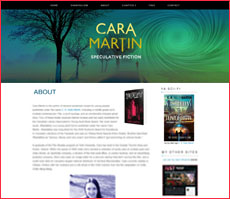These statistics demonstrate that sexual assault is a crime that's widespread in North America. If we ourselves have not been victims the odds are we have a family member or close friend who has.
Young women in particular are at risk. 44% of rape and sexual assault victims are under 18 and “girls ages 16-19 are 4 times more likely than the general population to be victims of rape, attempted rape, or sexual assault.” You can read more stats about sexual assault on the RAINN site and if you need help, contact them via the national sexual assault online hotline or call 1-800-656-HOPE.
The RAINN site has important info to digest whether you're a survivor of sexual violence yourself, are trying to assist someone who is, or are just interested in developing an awareness about the crime. Here are a few helpful direct links:
Ways to help a loved one
Self-care for survivors
Self-care for friends and family members
What to do in a social situation
What to do if someone is pressuring you
are especially important for young women and would like to repeat some of the things RAINN suggests you try if you need to get out of or avoid a scary social situation:
Having said that, as a culture it's imperative that we stop placing the onus of sexual assault prevention at women's feet. “There is just no way to protect women from sexual violence by having them alter their behavior, unless we completely remove all women from social situations. The rapist is the problem, and he will eventually find a victim.” (from the SAFER blog)
• Trust your instincts. Don’t feel obligated to do anything you don’t want to. “I don’t want to” is always a good enough reason.
• Be true to yourself. Do what feels right to you and what you are comfortable with.
• Have a code word with your friends or family so that if you don’t feel comfortable you can call them and communicate your discomfort without the person you are with knowing. Your friends or family can then come to get you or make up an excuse for you to leave.
• Lie. If you don’t want to hurt the person’s feelings it is better to lie and make up a reason to leave than to stay and be uncomfortable, scared, or worse. Some excuses you could use are: needing to take care of a friend or family member, not feeling well, having somewhere else that you need to be, etc.
• Try to think of an escape route. How would you try to get out of the room? Where are the doors? Windows? Are there people around who might be able to help you? Is there an emergency phone nearby?
• When you go to a party, go with a group of friends. Arrive together, check in with each other and leave together.
• Practice safe drinking. Try not to leave any beverages unattended or accept drinks from someone you don’t know or trust.
• Be aware of your surroundings. Knowing where you are and who is around you may help you to find a way out of a bad situation.
If our society truly wants to reduce sexual violence we need to do an enormous amount of work combatting the social beliefs that make sexual assault more likely to occur—for instance the belief that victims share in the responsibility for their attack if they were drinking heavily, flirting, dressing or behaving in a certain way (recent surveys like this one of UK students “show that even among younger people the view that women ‘ask for it’ is stubbornly held”). By even partially absolving the attacker we not only let the true victims down but also send a message to a new generation of young men (99% of rape offenders are male) that there are circumstances under which it's alright (or at least, not quite as wrong) for men to commit sexual assault.
I remember back in 1989 when an anti-rape campaign was launched at Queen's University in Kingston, Ontario. Journalists captured images of men's residences displaying signs reading:
No Means More Beer
No Means Dyke
No Means Kick In Her Teeth
The people who put up these signs were the guys next door—the guys girls went to school with, dated, partied with—not the maladjusted psychos we tend to imagine lurking in dark corners waiting to pounce on strangers (although sexual attacks are committed by strangers too, just with less frequency). No doubt many of the Queens guys in those residences wouldn't actually sexually attack someone but it's not difficult to see how taping up such hostile messages or doing things like advising a friend about how he's likely to score with a certain girl because she's wasted help sustain a culture rife with sexual assault. And it's not like these attitudes have disappeared in the past twenty years either; if anything, judging by the amount of sexual assault occurring within the Ontario school system, toxic attitudes about women are even more prevalent.
The following is from a Minneapolis Star-Tribune article on sexual assault prevention training aimed at changing men's attitudes that I discovered via the SAFER blog:
Tyler Jones was tipping back a couple of beers with friends at a Dinkytown bar when he suddenly had to take a stand.
“Hey, see that girl over there?” Jones recalled an acquaintance asking, nodding toward a woman he wanted to take home. “She’s almost drunk. Not quite drunk enough…What shot should I buy her?”
There was a time, Jones says, when he might have laughed off the remark. Not anymore.
“You want to buy her something really strong to like, basically knock her out?” Jones, a University of Minnesota senior, recalled saying. “Man, that’s not right. That’s rape. That’s sexual assault.”
The acquaintance looked stunned. “Whatever,” he mumbled, and walked away.
This shift in prevention training which is currently occurring on some college campuses is crucial. As Lauren Pilnick, sexual violence education coordinator at Minnesota State University, states, “The fact of the matter is that prevention comes down to, largely, males. Because males are primarily the ones perpetrating these crimes.”
As a woman (or a man, as they can also be victims of sexual assault—in 2003 1 in 10 rape victims in the U.S. were male), guarding your drink and avoiding risky situations may keep you safe for the night but challenging attitudes that create an environment where sexual assault is more likely to occur makes everyone safer in the long-term.
Learn more about Krishnar Lewis and his song “Sad Girl”.
Read Heather Corinna's article “How You Guys -- that's right, you GUYS -- Can Prevent Rape” on Scarleteen
Read about “How Sexual Violence Really Happens” on the SAFER blog (trigger warning)
Check out these organizations dedicated to preventing, healing, and eliminating sexual violence: SAFER (Students Active For Ending Rape), Men Can Stop Rape, The White Ribbon Campaign, RAINN: Rape, Abuse and Incest National Network, MaleSurivor, Wo(Men Speak Out)















